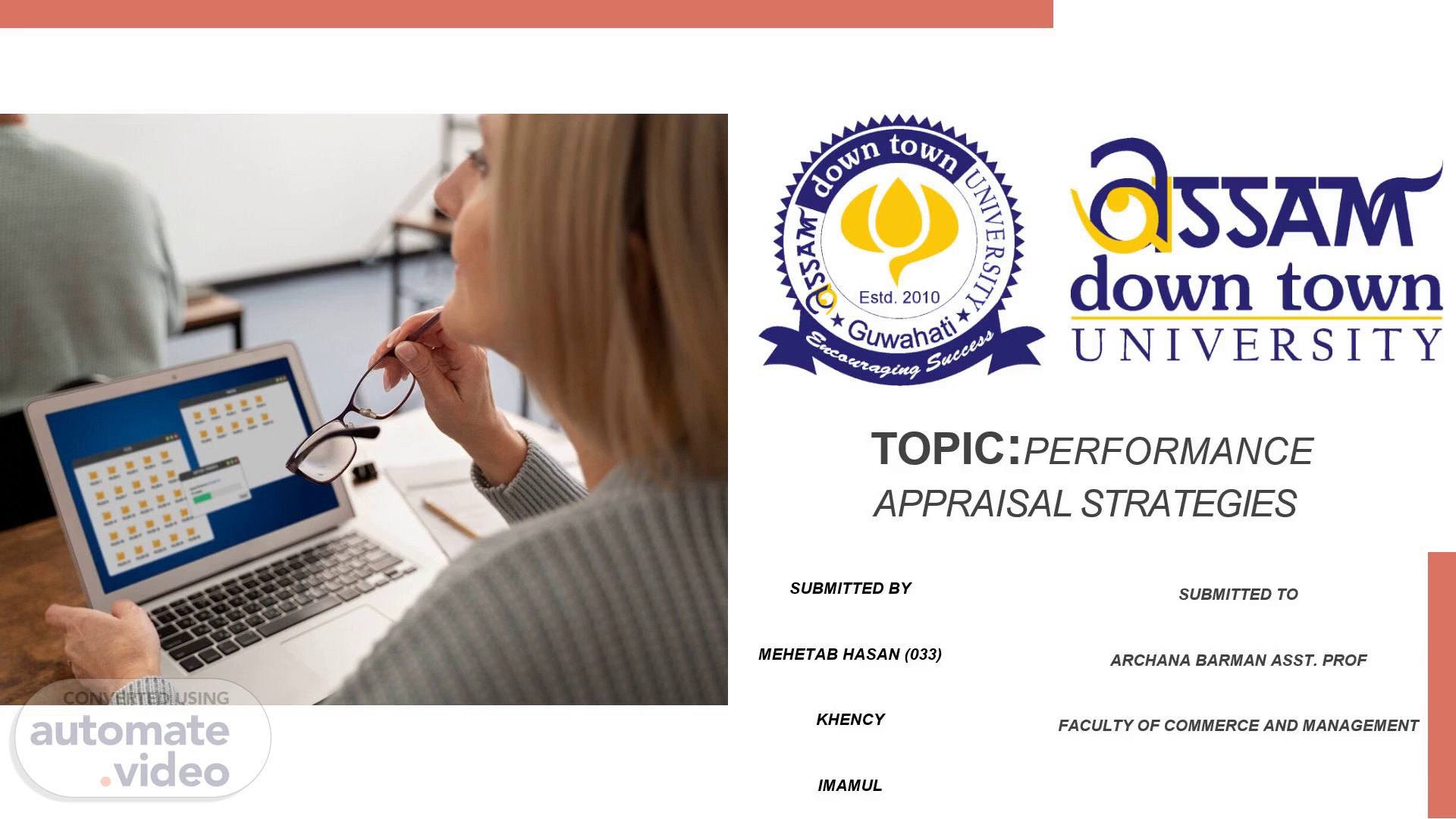Scene 1 (0s)
[Audio] TOPIC:PERFORMANCE APPRAISAL STRATEGIES SUBMITTED BY MEHETAB HASAN (033) KHENCY IMAMUL SUBMITTED TO ARCHANA BARMAN ASST. PROF FACULTY OF COMMERCE AND MANAGEMENT.
Scene 2 (13s)
[Audio] INTRODUCTION TO PERFORMANCE APPRAISAL In today's competitive environment, e ective strategies are crucial for organizational success. They not only enhance employee but also align individual goals with . This presentation will explore various strategies to optimize performance appraisals..
Scene 3 (33s)
[Audio] IMPORTANCE OF PERFORMANCE APPRAISAL Performance appraisals serve as a vital tool for and . They help identify employee strengths and areas for improvement, fostering a culture of . This ultimately leads to increased employee and organizational performance..
Scene 4 (52s)
[Audio] SETTING CLEAR OBJECTIVES Establishing is fundamental for e ective performance appraisals. Objectives should be : Specific, Measurable, Achievable, Relevant, and Time-bound. This clarity helps employees understand expectations and enhances accountability..
Scene 5 (1m 11s)
[Audio] CONTINUOUS FEEDBACK MECHANISMS Implementing mechanisms is essential. Instead of relying solely on annual reviews, regular check-ins and feedback sessions promote a culture of . This approach allows for timely adjustments and fosters ..
Scene 6 (1m 26s)
[Audio] INCORPORATING SELF-APPRAISALS Encouraging empowers employees to reflect on their performance. This process not only promotes but also encourages a sense of ownership over personal development. It creates a more balanced appraisal process..
Scene 7 (1m 42s)
[Audio] UTILIZING TECHNOLOGY IN APPRAISALS Leveraging can streamline the performance appraisal process. Tools such as performance management software facilitate easier tracking of goals, feedback, and progress, ensuring a more and e ective evaluation process..
Scene 8 (2m 0s)
[Audio] TRAINING FOR EVALUATORS Providing for evaluators is crucial to ensure consistency and fairness in appraisals. Well-trained managers can deliver constructive feedback and avoid biases, creating a more appraisal process that employees can rely on..
Scene 9 (2m 16s)
[Audio] CONCLUSION AND BEST PRACTICES In conclusion, e ective performance appraisal strategies significantly contribute to . By setting clear objectives, incorporating continuous feedback, and utilizing technology, organizations can enhance employee performance and engagement. Implementing these is key..
Scene 10 (2m 39s)
[Audio] THANK YOU. THANK YOU.
